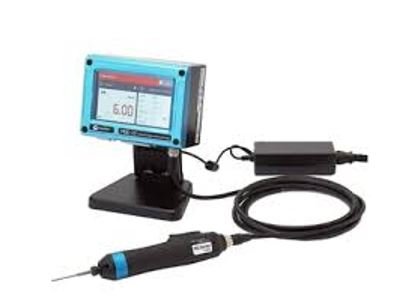
In the competitive landscape of manufacturing, maintaining quality control is critical. Industries in Nashik and Pune are increasingly recognizing the importance of using the right tools to achieve high-quality standards in their production processes. Torque control electric screwdrivers are transforming the way industries approach quality assurance in assembly lines.
Why Quality Control Matters in Manufacturing
Quality control is the process of ensuring that products meet specific requirements and standards. In manufacturing, quality issues can lead to defects, recalls, and dissatisfied customers. For industries in Nashik and Pune, the stakes are high, making the adoption of advanced tools essential for maintaining quality.
Benefits of Torque Control Electric Screwdrivers for Quality Control
- Accurate Torque Settings: Torque control electric screwdrivers allow operators to set precise torque levels, ensuring that each screw is tightened correctly. This accuracy reduces the likelihood of mechanical failures and enhances the overall quality of the final product.
- Screw Counting Function: The built-in counting function of these electric screwdrivers provides manufacturers with a reliable way to track the number of screws installed. This feature is vital for avoiding missing screws, which can lead to product malfunctions and safety concerns.
- Consistent Results: Manual tightening can vary significantly between operators, leading to inconsistencies in product quality. With torque control electric screwdrivers, every operator achieves the same results, promoting uniformity in assembly processes.
- Reducing Warranty Claims: By ensuring that screws are tightened to the correct specifications, manufacturers can significantly reduce the number of warranty claims related to assembly issues. This not only improves customer satisfaction but also protects the company’s reputation.
Data Collection for Continuous Improvement: Many modern torque control electric screwdrivers come with data logging capabilities, allowing manufacturers to analyze performance and identify areas for improvement. This data-driven approach supports continuous quality improvement initiatives in industries.
5. Real-World Application: Success Story in Nashik’s Manufacturing Industry
An electronics manufacturer in Nashik integrated torque control electric screwdrivers into its production line, focusing on improving quality control. After implementation, the company reported a 30% reduction in defects associated with screw installation, thanks to the precision and counting features of the tools. This enhancement not only improved product quality but also boosted customer trust.
Conclusion
For manufacturers in Nashik and Pune, adopting torque control electric screwdrivers is an investment in quality control and operational efficiency. By providing accurate torque settings and a reliable counting function, these tools enhance product quality and reduce the risk of assembly errors.
